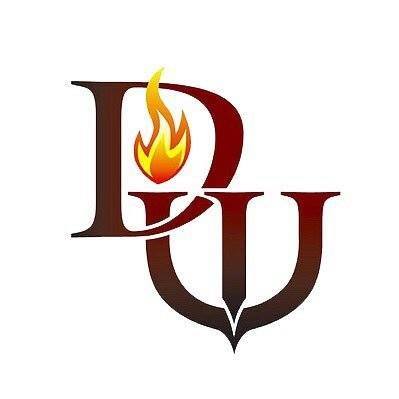- 3 Posts
- 20 Comments
I apologize for that. I assumed that since the changes were minor, that it wasn’t worth giving them more details. But I will be sure to include them in future updates :)
These are the moves that have gotten some minor changes (I also realized I haven’t incorporated all the changes into the player sheet itself)
- Clash: change the trigger slightly from “able to reach you” to “capable of reaching you”.
- Thwart Peril: Which stat to use is dependent on the players description. Not the nature of the danger. But it should make sense how they thwart it.
Considering the genre, Glitter Hearts should have something like Bonds. But for some odd reason, it doesn’t. It is something I added to my hack of the game. But as I mentioned, I wanted to revise the move.
But what you describe is basically how I envision it looking in the fiction. Except for the miss. The thing the move is suppose to imitate from the genre, is when the characters hangout, trouble/problems will some times show up (mystical happenings, strange dangers, meddling parents, etc.). Which I have realized after writing this reply to you, sounds an awful lot like a hard move XD
You also made me think, that maybe the stumbling sensation stems from: to activate the move, the character has to do it. AKA, go to the park, spend time with the Bond, etc. Trigger it through the conversation. So they are essentially already setting up the scene and having to do so again might just be repetitive.
I considered allowing spending of Bond (burning them). But my hack already had mechanics/resources that plays with rolls. So adding another one seems like it would be way to much.
Not sure if I explained how it “stumbled” (not good at explaining hunches and feelings). But it is like the story has to stop, create the scene which can risk taking quite some time, leaving the other players with nothing to do.
But moving the “scene” aspect to a miss sounds like a good idea. After all, it is basically what GMs already does on a miss. So maybe there is less need for wording a miss?
But would making it unavaible feel like a hard move? Usually hard moves mean “no way to prevent it”.
*Note: “Check Your Bond” is a move that is made to see if a Bond changes. It might also be the “lead in” to this move that is tripping up the flow.
Never tried the game and only glanced the book, so no idea what Strings are or how too use them. So my comments below might not be valid:
The circles seem awefully close to each other and the “darkness” of the grey might make it harder to see whatever is meant to be written in them. There is also alot of colors which will make it expensive to print.
So I would suggest
- Make more space/make the circles smaller
- Make the grey a tad or two brighter
- Remove the background or at least make a print friendly version. Maybe just have a smaller border or bottom if you want the colors.
But it is really nice to see people making playmaterials for games they enjoy :D
I understand that. All that dice juggling and optimazation, wasn’t that fun.
But unlike dnd, the dice is specific to each class. So a fighter will always use a d10. No matter if it is a sword, dagger, whip, etc.
And I really like how a fighter will generally be much more deadly than a wizard. Like in some hacks the dage is a d6 +/-X. And for me, it makes the damage between the classes feel very samy.
Oh dear o_O ! I pasted in the wrong link… Here is the right link (i hope). There is a folder with the individual playbooks as well.
I am also working on making a “Proper” file like with the other hacks, explaining some of the changes.
If you want spellcasting to be even more freeform, Mixed Adventure follows more the logic of most other moves, were the player describes what the character does and their intention. Each “school/domain”, doesn’t have their own move. It just determines how the fiction can be shaped by the character.
Edit: Updated the link
What makes HP feel different from Harm? It is essentially the same in my head. I also really like that in Dungeon World, that the game isn’t bogged down by what weapon does the most damage. It is all in the characters capabilities.
I haven’t looked at every hack of Dungeon World. But they all slightly changes some of the moves here and there. Either in ways I like or not.
Homebrew World has a slightly different take on inventory and the defend move I really enjoy. But it still uses spell lists. But it is more or less my go-to for one-shots due to it having much less mechanics.
I really liked Worlds of Adventure new stats (the unpublished version) and that race no longer has a hard mechanic behind it. But Wizards still use a spell list.
Unlimited Dungeons has a neat mechanic for wizard spells, but I find it still quite limiting an rigid. Its heritage mechanic is neat, but I do not like its “mark box to use ability”-aspect. But if the heritage aspect is removed, it is a nice hack.
My favorit is my own hack, Mixed Adventures, which combines the various aspects I enjoy from the hacks. The most unique part of it is how it handles spell casting which isn’t a fixed list. The character chooses couple aspects for their magic (spheres/domain) that determine what they can do with their magic. The player simply describes a spell that fits. And if it seems like to much, the GM may add requirements or say it must be a ritual (ala Monster of the Week).
When you say variants, do you mean the house ruled ones or the ones who published theirnown thing, yet still try to dip into fantasy genre?
Like Homebrew World is house ruled version and Fantasy World is its own thing.

 2·1 year ago
2·1 year agoThen we should definatly have a more clear icon. I would feel bad if I saw one stumbled in here, looking around all confused and in disbelief: ”this isn’t a place I like to be!”.
Poor souls -_-

 3·1 year ago
3·1 year agoNaice! That had bothered me for a bit. I am not sure how these boards work, but is it also possible to change the little icon next to the board to the simplified Dungeon World logo? It would make it easier to see it without the background “noise”.
That is not bbad at all. Maybe remove some of the very minor details. But it can definatly work as is :D

 4·1 year ago
4·1 year agoAsk questions of your players to fill in spots in the world, especially when uncertain about if something would be interesting. Tell the story with them, not to them.
I agree, but no obvious icon? What about the Powered by the Apocalypse icon?
Otherwise, I can try and make something when I have the time.
===== Dungeon World =====
The one I use is one I made myself, Mixed Adventures. It uses aspects from other hacks that I really liked but felt there was things missing. The most unique thing about my hack, is that the wizard and cleric don’t have a spell list. But use a freeform kind of magic limited by schools or the deity’s domains.
But if you give Dungeon World a try, I think you should try a “hackless” game first. The game is still decent and it will give you can better feel to of if you think it needs tweaking.
And you are correct. Avatar still uses the same flow as other PbtA games. So any experience with other games would give you valuable experience to run it as well :)
===== Principles =====
I feel like I’ve heard some strong reactions against stuff PbtA from similar circles though. Wonder what the disconnect there is
My take on this, is that the biggest difference between DnD and PbtA, is that DnD fixates a lot on balance and encourages a player vs GM mentality. Like encounter planing is so important, players rolls against the GM, the GM has to come up with twists for characters, etc.
That is a lot of work for one single person. And it has been like this for many years. I can imagine to some people, it might feel like being told to try and drive blindfolded. And trust your passengers to tell you were to go.
I have tried to pitched the open PbtA concept to a primary DnD GM a couple times, and one of them just looked at me horrified and asked: “What about my story? My plans?”. Or one complained that it didn’t seem fair that the players could decide the outcome of the dice .
But so far, from my own experience, I have never been more relaxed during my games. The openess and inclusivity of the players have lead to some amazing twists and turns in stories. Twists I didn’t even come up with. So less work for me AND I could actually be surprised by the story… Kinda like a player :D
===== FitD =====
That’s the first time I’ve heard someone call Forged in the Dark mechanically heavy
It is also my own take, and as I said, I havn’t actually tried a game yet. But when I compared it to DnD, FitD is not heavy at all. It is only when I compare it to most other PbtA games. But when I read the books, they still feel like solid games with some good explanations of the games flow.
Not sure if you have any FitD books, but there is one called Wicked Ones which has a free version of it.
PbtA’s “core” isn’t its mechanics, but its principles (though some might disagree). Some of these core principles are:
- Play to Find Out: Don’t decide before hand what happens or do tons of prep.
- Fiction First: If a rule wouldn’t make sense in the fiction, ignore or bend the rule to fit the fiction.
- Have a Conversation: Talking to each other is a very important part of the game. Without it, you are basically just playing a boardgame, but with room for many misunderstandings.
- Fail Forward: Every roll should move the Story forward, leading to something interested. Never just outright fail.
===== Dungeon World =====
Dungeon World is a great game. Though it is a little of a mixed bag if people like it or not. I would say it has its flaws, but I would still enjoy playing it as is. Though, I do mostly play a hacked (house ruled) version of it.
The “trap” with Dungeon World though, is that people who are coming from DnD might fall back on old habits due to DW sharing genre and feel with DnD. And DW, or any PbtA, does not play well when people have that mentality.
These articles explain pretty well how DW is meant to flow. And that flow should be universal for any PbtA you try out (Glitter Hearts, BitD, MotW, etc.).
- Dungeon World Guide : Good guide to give an idea of how the game flows.
- 16 HP Dragon: Great example of how important the fiction is, and how “fiction before rules”.
If you really want to break away from the DnD mentality, there is this neat article about creating the story as you play with the players (The Strandberg Recipe)
Basically the GM comes to the table with nothing more than an idea and some loaded questions. Three core questions should establish:
- An interesting location
- A looming danger
- A call to action
What the players answer becomes truths and the premise of the starting adventure.
===== Avatar Legends =====
Regrettable, as the rules are, I don’t have any advice. Normally a PbtA game uses the same rules/principles. It doesn’t have extra sub systems to keep track of. But Avatars combat does.
I have some ideas on how to house rule it to flow more naturally, but never gotten gone into putting it on paper. But I will say that if you have the interest and passion, I don’t think the rules would be a hindrance.
===== Girl By Moonlight =====
I haven’t looked at Girl By Moonlight that much, but it does look neat. But unfortunately, Blades in the Dark (BitD) and games based on it, have felt rather mechanically heavy for me. I must admit that I haven’t tried one. Only read the books. So take my words on that part with a grain of salt.
But on paper when I compare BitD to other PbtA games, there are many more bits and pieces to keep track off. Almost like a mix of DND and PbtA.
===== Favorit System =====
I think Monster of the Week is a good representation of the principles of a PbtA. It is a action-horror game inspired by Buffy: the vampire slayer, x-files, M.I.B. And other similar series/movies. It has some very good sections describing how these games usually flow and how the GM and players are part of telling the story rather than the GM being the one doing all the work.
It being my favorit, might also be colored by the fact that during a very tough GM burnout on DnD, it helped me find the joy and passion for TTRPGs again.
Officially, the druid is my favorit. The versatility of their shapeshifting and how it is tied into a specific kind of place gives it such a nice flavour.
Unofficially, it is the Mixed Adventure hack for the wizard. It removes the spell lists and instead uses a school/sphere system. The player describes the effect they want to achieve with the spell, but the effect must fit within the school their character has learned.
D&D has such a huge presence in media, so I cannot see nearly the same amount of people talk about D&D in the same way.
Spout Lore or Monster Hour. Two podcasts podcasts that plays Dungeon World and the other Monster of the Week. The thing both do really well, is show how the game should a conversation between the group. Talk to each other to make sure everyone is onboard with what is happening. And more importantly, encourage each other to be PART of the conversation. Which is incredibly important in a PbtA game (could argue that it is in any game really).
Otherwise, there is also a ton of other resources to help explain how to run a PbtA game. But an important thing to note: many PbtA have similarities, but usually, each with feel completely different because they will often do their own thing. Because “being PbtA”, usually means following a set of principles. Not rules.
As for Avatar and Glitter Hearts (these are my own takes):
I was sorely disappointed in Avatar. The combat is very unsatisfying because a lot of the game flows rather well, following the fiction and being part of the conversation. But then that flow suddenly comes to a screeching halt when combat comes up. And everyone now has to “switch gears”, playing a different way. But the premise and the book in general, is solid and good.
Glitter Hearts is a neat game that tries to cover a genre I really like playing in. But it feels like the creator didn’t understand the system nor the genre. So it lead to a game with a good deal of holes, a feeling of being incomplete and half-hearted. This makes it a very bad starter game for someone new to PbtA. Not beginner friendly at all.
I have tried to create a hack, Hearts of Harmony to fix some of these holes and cover some of the things the book missed.
My favorit is Mixed Adventures which I made myself (mixes aspects of other hacks).
If I was to choose besides my own, i would say Homebrew World which is the the one that has least rules.

So the idea is you write soemthing related to the prompt tied to a date? So the 8th would be: favourit character?
I character Inloved playing was a druid with a philiaophy of learning by doing. He was loved life and everything it contained.
He was originally made for a dnd game, which strongly incentifies not putting anything into a druids physical stats. But I said: “to heck with that. Concept and fun before rules.”